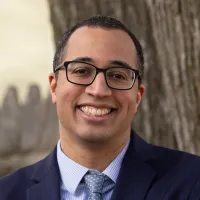UPL Functions & Regulations in the Era of AI
Part of the webinar series AI, Access to Justice & UPL: Shaping the Future of Legal Services.
The second webinar in the series offers a fulsome examination of Unauthorized Practice of Law (UPL), exploring its foundational elements and practical implications. The session begins by analyzing UPL's three core functions: maintaining professional integrity, insulating the legal profession, and creating deterrent effects. This analysis includes critical discussion of how UPL regulations intersect with the significant legal services gap affecting low and middle-income populations. Participants will gain insight into the substantial variations in how UPL is defined, regulated across different jurisdictions, and enforced in practice. The session concludes with discussion of the distinction between legal advice and legal information, helping attendees understand this fundamental boundary in legal service delivery.




